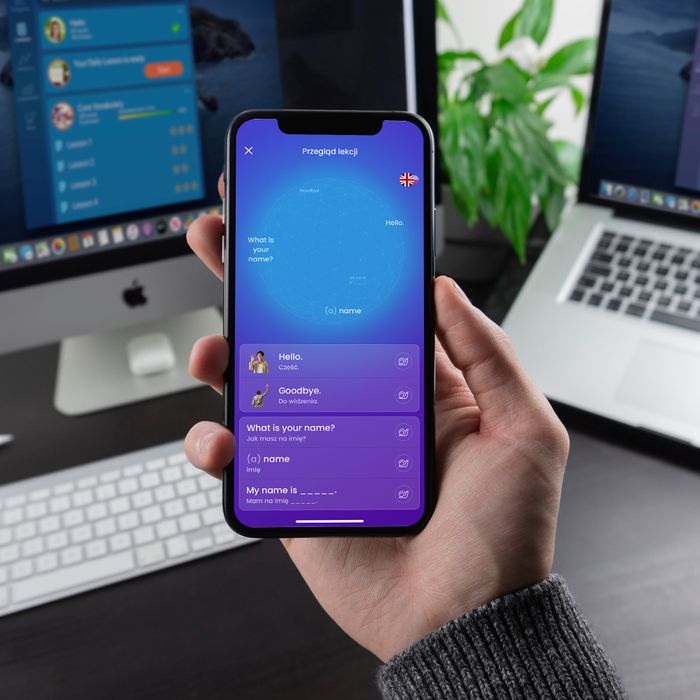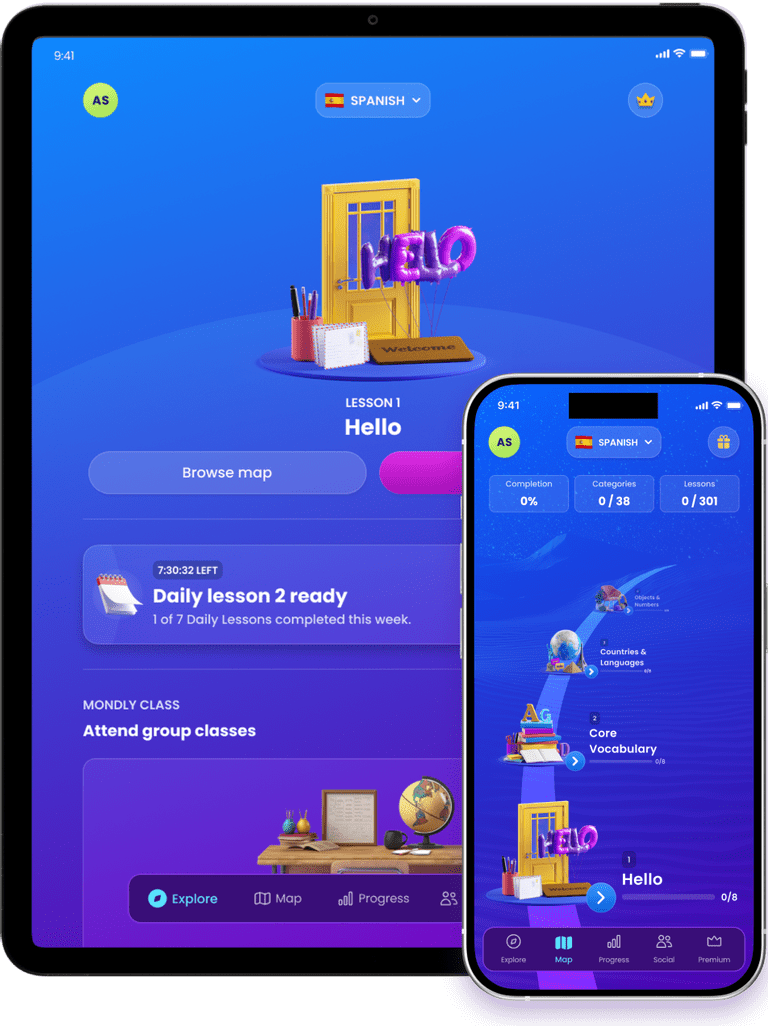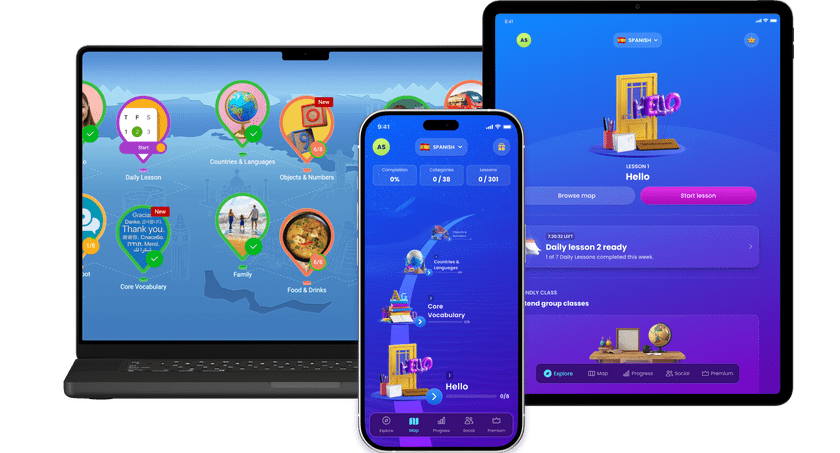Master Polish Grammar: Your Path to Fluency
Why Polish Grammar Matters
Compared to many languages, Polish grammar has its own unique structures that may seem complex at first but are deeply rewarding to master. While English grammar often challenges learners with its many exceptions, Polish grammar presents intricacies such as noun cases, verb conjugations, and word order. Understanding the importance of grammar is essential for learning how to speak Polish effectively. Learning the grammar of any language, especially Polish, is fundamental for effective communication, cultural appreciation, and personal and professional growth. Mastering Polish grammar equips you with the skills to confidently engage in conversations, understand traditions, and build connections in Poland and beyond.
● Grammar as a Key to Success: Correct grammar is vital in Polish-speaking environments. Proper use of Polish grammar can greatly impact professional opportunities, social interactions, and cultural integration, especially in Poland.
● Grammar as a Framework for Meaning: Grammar gives structure and meaning to words in any language. In Polish, understanding noun cases and verb aspects is crucial for creating clear and accurate sentences, making communication precise and effective.
● Appreciating the Depth of the Language: Mastering Polish grammar opens the door to a deeper understanding of the language’s richness, history, and cultural context. Polish grammar rules reveal the nuances of the Slavic language family and how Polish connects to its linguistic roots.
Learning Polish Grammar
● Broadening Your Horizons: Understanding Polish grammar allows learners to construct meaningful sentences, both in formal and informal contexts. It also helps navigate cultural nuances that enrich language learning and foster deeper connections with native speakers.
● Connecting Languages: With its Slavic roots, Polish grammar offers insights into related languages like Czech, Slovak, and Ukrainian. Learning these grammatical structures can expand your understanding of the Slavic language family, opening doors to further linguistic exploration.

Make Learning Fun: Polish Grammar Exercises That Feel Like Play


Join Millions in Perfecting Polish Grammar




1 000 000+ + Ratings
Mondly was named "Editors' Choice" in Google Play and "Best New App" by Apple.
Speak Naturally: Polish Grammar for Real-Life Conversations

Our language experts have designed an innovative learning experience where you can practice Polish grammar naturally by building real sentences grounded in real-life contexts. Order pierogi in a Polish café. Have a casual chat with a fluent speaker about your weekend plans. Discuss your favorite book or movie in Polish. These grammar exercises are organized around themes that enhance your understanding of Polish sentence structure, verb conjugations, and word order.
Want to master verb conjugations in Polish? With our on-demand conjugation table, you can click on any verb during an exercise and instantly see its conjugations in the present, past, and future tenses. Whether you’re just starting with Polish grammar for beginners, exploring intermediate concepts, or tackling advanced topics like complex verb aspects, Mondly provides tailored exercises to match your level. From mastering noun cases to perfecting sentence structure, you’ll get the most out of your learning experience with Mondly.

Fascinating Insights About Polish Grammar
In Polish, like in many languages, certain letters and sounds occur more frequently. The most commonly used letters in Polish are "a", "i", "o", "e", and "z". However, Polish also features distinctive diacritic marks, such as "ą", "ę", "ś", and "ł", which are crucial to proper pronunciation and meaning. These unique sounds, like "cz" or "sz", give Polish its characteristic Slavic flavor. By understanding these nuances in Polish letters and numbers, you’ll enhance your fluency and communicate with greater accuracy and confidence.
● Distinctive Polish Sounds: Diacritic marks and unique letter combinations create sounds that give Polish its distinct character. Mastering these, such as "ą" and "sz", is key to sounding like a native speaker.
● Numbers That Follow the Rules: Polish grammar introduces a structured system for numbers. Numbers must agree in gender and case with the nouns they modify. For example, "trzy książki" (three books) uses a different form than "trzy domy" (three houses) due to the gender of the nouns.
● Building Large Numbers Logically: Polish has a logical approach to forming larger numbers. For example, 21 is "dwadzieścia jeden" (literally "twenty one"). However, Polish applies grammatical case rules even to numbers, adding complexity for learners.
● Avoiding Number Confusion: One unique challenge is the distinction between "miliard" (billion) and "bilion" (trillion in American English), which can cause confusion in international settings. Learning these differences ensures clarity in global communication.

The Mondly Advantage: Master Polish Grammar Effortlessly

Polish grammar will feel easy and fun
Our expert linguists have crafted Polish grammar exercises that make learning feel like a game. You’ll absorb key grammatical structures naturally while focusing on real-world usage. With our innovative approach, tricky concepts like verb conjugations or noun cases become manageable and intuitive. Before long, you’ll impress native speakers with your polished Polish grammar skills, making communication smoother and more enjoyable.

Master Polish grammar the smart way
Learning Polish grammar doesn’t have to be overwhelming. Instead of starting with the most complex rules, we introduce you to the most commonly used Polish words and sentence patterns. This step-by-step approach ensures you build a solid foundation for everyday Polish conversations, helping you speak with confidence. By focusing on what matters most, you’ll master how to speak Polish without feeling stuck in theory.

Learn Polish with friends
Learning Polish grammar can sometimes feel overwhelming. That’s why we’ve introduced language leaderboards to keep you motivated. Compete with friends and learners from around the world to make mastering Polish grammar a fun and engaging experience. Play your way to fluency while staying inspired every step of the way.

Get ready for real conversations in Polish
Every Polish exercise created by our world-class linguists is carefully designed to bring you closer to real conversations. That’s why we’ve included speaking exercises to help you practice the Polish grammar and vocabulary you’ve learned. These practical tools prepare you to confidently use Polish words and phrases in authentic conversations.
Join 125 million people learning a language with Mondly by Pearson
Learn Polish for free with Mondly
Related Pages
Learn Polish OnlinePolish WordsPolish Phrases and ExpressionsSpeak PolishPolish LessonsSubscribe to our newsletter
Join over 125 million people enjoying our occasional language tips, special offers and more.
The email address is not valid
Subscribe














